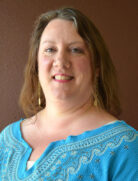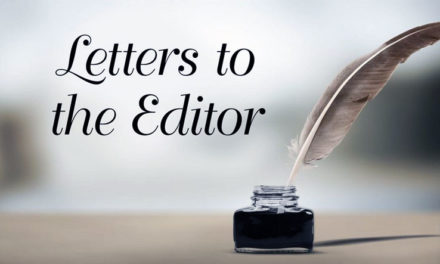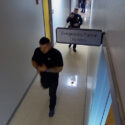In the world of media, outlets are often in competition for readers’ eyes and advertiser’s dollars. The world of New Mexico journalism is relatively small, so you get to know one another.
I’m not going to say we like each other and we aren’t necessarily friends, but we know each other.

Julia M. Dendinge
Assistant Editor
There are sometimes barbs thrown at each other and criticism of the others’ coverage. Your own is always superior, by the way. Even with our differences, sometimes there’s an event that causes even the most competitive journalist to pause and throw support behind a rival.
One such event happened earlier this month, when a KRQE reporter was booted out of a Senate committee meeting for, you know, doing her job. Apparently, there was a rule that anyone — media or members of the public — needed permission to photograph or make video or audio recordings of a public Senate committee meetings.
A public meeting of the members of the state Legislature, where they are deliberating the public’s business, on the public’s dime, can’t be documented without permission. Or at least that was the case until Feb. 15, when Senate Rule Two was unanimously approved, which repealed the need for permission.
Sen. Jeff Steinborn’s office sent out a press release Monday morning touting the new transparency rule. Well, good for them. Good for members of our governing body for doing the bare minimum to graciously allow the public and media to hold them accountable.
The press release ballyhooed that it was Steinborn’s third such measure to increase transparency of the legislative process. In 2010, he pushed through House Rule Two, which created webcasting for committee meetings, and only six years later, he passed House Rule 1, which required those webcasts be archived for five years.
In a state as sprawling as New Mexico, webcasting government in action and then having those sessions preserved for future review is a tremendous resource. Assuming you have broadband internet fast enough for such a service, but that’s a whole different subject.
As a reporter, I’m a huge proponent of transparency from our public officials, and I’m not knocking the things Steinborn and the Senate have done. Well, I mean I am a bit though. Think about it: They reversed a rule that never should have been a rule in the first place, and we’re expected to laud them for the favor.
Preventing members of the public or media from filming, recording or photographing committee meetings never should have happened.
For those who might not know the process, committee meetings are where legislation goes for debate and rewrites before it goes before the entire chamber for consideration. So a bill that was introduced might get a major overhaul before the entire Senate or House hears it. It’s not a bad process — the entire body cannot be involved in the initial consideration of legislation or else the Roundhouse would grind to a halt.
Instead, small groups of senators or representatives meet and debate the bills, revising them, getting feedback and testimony from the public and experts.
It’s a good system, a necessary system, but it has to be open, transparent, watched and documented. Without that accountability, language creeps into bills that was never intended by the original drafter, changes are made that nullify the purpose and well, things go off the rails.
During the kerfuffle with KRQE, one senator said he was concerned the footage would be “spliced and edited to be used against someone.” That’s a rather cynical view of not only the world but how the media does it’s job. Reporters of all mediums — print, TV, radio, web — perform their jobs in a similar way.
We gather information and boil it down for the public. We present the bottom line — to the best of our abilities — with the information we’ve gathered.
Film is a powerful medium. You have a person and their words, right there, in living color and sound. But the idea that any other type of reporting can’t be “spliced” is just ludicrous.
I work in print. When you read one of my articles about a county commission meeting, it’s a distillation of what may have been literally thousands of spoken words.
Reporters observe and report. It’s right there in the title. If our elected officials are afraid something they say in a public meeting might be used against them, they have a couple of choices — stay silent or find a new job.
Julia M. Dendinger began working at the VCNB in 2006. She covers Valencia County government, Belen Consolidated Schools and the village of Bosque Farms. She is a member of the Society of Professional Journalists Rio Grande chapter’s board of directors.















